
A list of debate and discussion protocols for classroom use.
- Subject:
- Social Science
- Material Type:
- Activity/Lab
- Author:
- Amit
- Date Added:
- 08/03/2024

A list of debate and discussion protocols for classroom use.
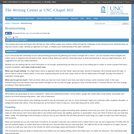
This handout discusses techniques that will help you start writing a paper and continue writing through the challenges of the revising process. Brainstorming can help you choose a topic, develop an approach to a topic, or deepen your understanding of the topic’s potential.
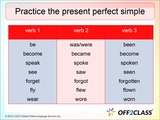
Before teaching this lesson, it is expected that you have a good understanding of what the present perfect simple tense is. You should know that it is used to describe events that took place in the past, which have a result now (in the present). I recommend that you review the lesson plan before teaching it so that you have a firm understanding of the concepts and activities it includes. If you want additional lesson plans and support, including teachers’ notes, be sure to register for a free Off2Class account.

Before teaching this lesson, it is expected that you have a good understanding of what the present perfect simple tense is. You should know that it is used to describe events that took place in the past, which have a result now (in the present). I recommend that you review the lesson plan before teaching it so that you have a firm understanding of the concepts and activities it includes. If you want additional lesson plans and support, including teachers’ notes, be sure to register for a free Off2Class account.
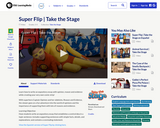
Learn how to write an expository essay with opinion, reason and evidence while creating your very own comic strip!
With superhero Captain Opinion and her sidekicks, Reason and Evidence, the viewer goes on a fun adventure into the world of opinions and the importance of supporting them with lots of reasons and evidence.
Learning Objective:
Have students write an expository essay that establishes a central idea in a topic sentence; includes supporting sentences with simple facts, details, and explanations; and contains a concluding statement.
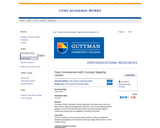
According to Project Information Literacy, defining and narrowing a topic is the most difficult step for beginning undergraduate researchers. This concept mapping lesson is designed to reinforce the idea that when students are writing academic papers or creating class projects they are engaging in a scholarly conversation.
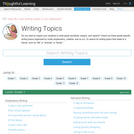
Do you want to inspire your students to write great narratives, essays, and reports? Check out these grade-specific writing topics organized by mode (explanatory, creative, and so on). Or search for writing topics that relate to a theme, such as “life” or “animals” or “family.”
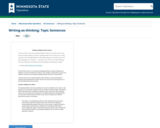
The goal of this exercise is to leverage the interdependent between writing and thinking and, ultimately, to show your students how writing is, in fact, thinking. More precisely, the goal is for students to create their own, original and arguable thought in the form of a topic sentence. Coming up with your own, arguable thought is hard, and often we expect such thoughts to somehow spring magically from our brains. However, the easiest way to start this process is to start with what someone else has written.